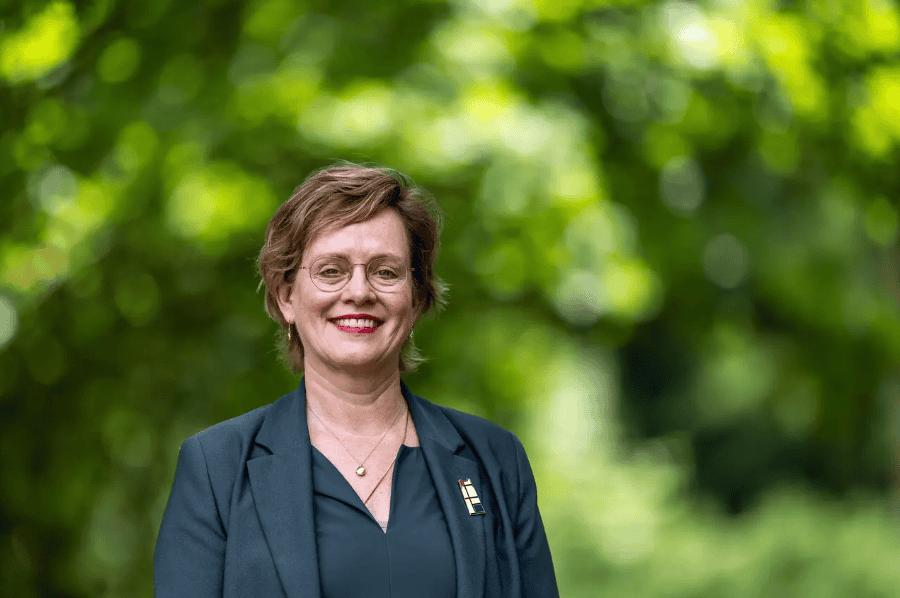
The annual Smart City Expo World Congress is taking place in Barcelona. It is the largest in its field with 25,000 visitors. The motto of this edition is Cities made of dreams. Nevertheless, all those dreams also involve a whole lot of hardware.
Dreams are wonderful. But 5G doesn’t just happen, as the people who are responsible for laying the infrastructure are well aware of. “All those 5G antennas that will soon provide super-fast connections will also have to be connected to fiber-optic cables below the ground,” says Petra Claessen at the Smart City congress in Barcelona, She’s the director of BTG, the Dutch branch association for ICT. “In order to avoid having to break open the sidewalk three times in the future, a law must be quickly put in place to ensure that the mobile network operators will share their infrastructure.”
The BTG has come up with a uniform standard that should ultimately lead to legislation, but it is hasn’t gotten that far yet. The three major providers -KPN, T-Mobile and VodafoneZiggo – are currently all building their own transmission masts. Given that 5G requires many more masts, the BTG acknowledges that this will be a never-ending task. “The operators should be able to share the costs in the future.”
Not solely on dreams
Smart Cities are fabulous. However cities can’t be built solely on dreams, as they all know at the BTG. “This also requires a lot of hardware. Lampposts of the future will become multifunctional. In addition to light, there will also be Wi-Fi, and possibly power for electric cars. At the moment, the population is insufficiently informed about what is coming their way. Smart cities are going to matter a lot as far as infrastructure is concerned.”
Also read: Don’t develop technologies which won’t solve any real problems
According to Irene van Bruines (from the brand new procurement platform Smart City Plaza) a lot of missionary work also needs to be done in the municipalities. “In a certain municipality, they have already come a long way with smart street fixtures. But in another municipality, a public servant put it quite bluntly: ‘I don’t want any gimmicks on my patch.’ In that respect, there is still so much that has to be done.”
Bruines, who has a long career in construction and infrastructure, now makes it very easy for municipal purchasers by providing a complete, independent, overview of products for smart cities through her platform. From sensors to charging stations and from solar-powered rubbish bins to ultra-quiet wind turbines, Smart City Plaza offers it all. The only thing municipalities have to do is subscribe to this gift guide for smart city officials.
Rotterdam designs a modular streetlamp
The city officials of Rotterdam no longer need to be told anything more about smart cities. It’ s buzzing with ambition in the Maasstad, which this year almost clinched the ‘Innovation Capital of Europe‘ award. The city aims to be a model digital city by 2025.
One of the projects that fit in with this, was the design of a smart lamppost. The city has developed CENT-R, a modular lamppost, together with start-up Lightwell, the Da Vinci College in Dordrecht, Rotterdam University of Applied Sciences and the manufacturer Valmont. The CENT-R (Connective Energy Network Tool – Rotterdam) prototype was finished just in time for the expo in Barcelona and was unveiled there. In addition to 5G, electric charging, cameras and lighting, the lamppost can also be retrofitted to accommodate any future innovations. Three smart poles will be put into use in the Rotterdam district of Reyeroord towards the end of next January.








